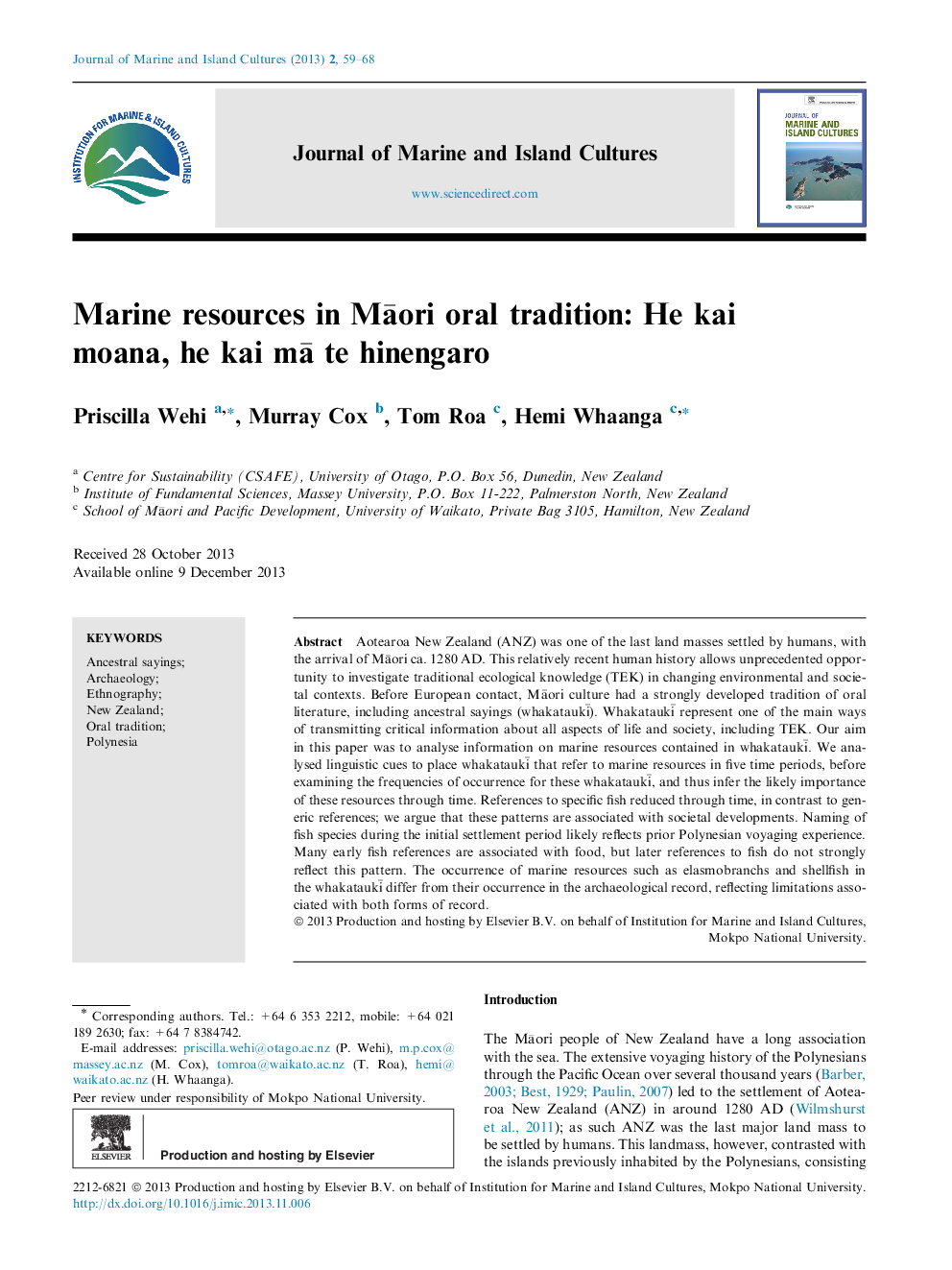| Article ID | Journal | Published Year | Pages | File Type |
|---|---|---|---|---|
| 1107079 | Journal of Marine and Island Cultures | 2013 | 10 Pages |
Aotearoa New Zealand (ANZ) was one of the last land masses settled by humans, with the arrival of Māori ca. 1280 AD. This relatively recent human history allows unprecedented opportunity to investigate traditional ecological knowledge (TEK) in changing environmental and societal contexts. Before European contact, Māori culture had a strongly developed tradition of oral literature, including ancestral sayings (whakataukī). Whakataukī represent one of the main ways of transmitting critical information about all aspects of life and society, including TEK. Our aim in this paper was to analyse information on marine resources contained in whakataukī. We analysed linguistic cues to place whakataukī that refer to marine resources in five time periods, before examining the frequencies of occurrence for these whakataukī, and thus infer the likely importance of these resources through time. References to specific fish reduced through time, in contrast to generic references; we argue that these patterns are associated with societal developments. Naming of fish species during the initial settlement period likely reflects prior Polynesian voyaging experience. Many early fish references are associated with food, but later references to fish do not strongly reflect this pattern. The occurrence of marine resources such as elasmobranchs and shellfish in the whakataukī differ from their occurrence in the archaeological record, reflecting limitations associated with both forms of record.
